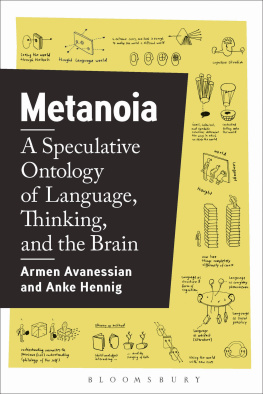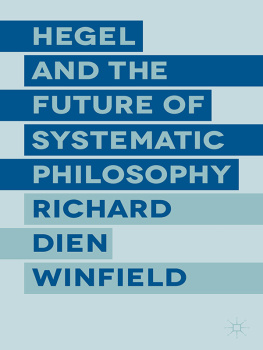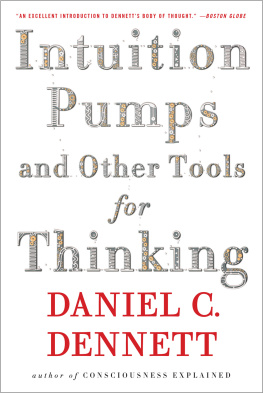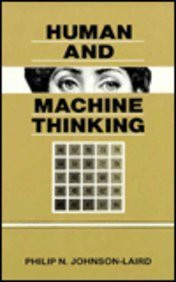Thinking on Thinking
Studies in Mind, Meaning, and Subjectivity
Robert M. Berchman
Thinking on Thinking
Studies in Mind, Meaning, and Subjectivity
Foro di Studi Avanzati Series
Copyright 2021 Robert M. Berchman. All rights reserved. Except for brief quotations in critical publications or reviews, no part of this book may be reproduced in any manner without prior written permission from the publisher. Write: Permissions, Wipf and Stock Publishers, W. th Ave., Suite , Eugene, OR 97401 .
Pickwick Publications
An Imprint of Wipf and Stock Publishers
W. th Ave., Suite
Eugene, OR 97401
www.wipfandstock.com
paperback isbn: 9781725273818
hardcover isbn: 9781725273825
ebook isbn: 9781725273832
Cataloguing-in-Publication data:
Names: Berchman, Robert M., author.
Title: Thinking on thinking : studies in mind, meaning, and subjectivity / by Robert M. Berchman.
Description: Eugene, OR: Pickwick Publications, 2021. | Foro di Studi Avanzati Series . | Includes bibliographical references and index.
Identifiers: isbn 9781725273818 ( paperback ). | isbn 9781725273825 ( hardcover ). | isbn 9781725273832 ( ebook ).
Subjects: LCSH: Philosophy. | Neoplatonism. | Plotinus. | Origen.
Classification: bd362 b47 2021 ( print ). | bd362 ( ebook ).
04/21/21
Foro di Studi Avanzati Series
The Foro di Studi Avanzati/Roma Series in Ancient, Medieval, Renaissance and Modern Texts and Contexts ( FSA/AMRMTC ) publishes studies in philosophy, theology, religion, aesthetics, and politics. Each volume of this series contains works arising out of FSA research projects commissioned by FSA Fellows. The aim of the series is to offer diachronic and synchronic studies on concepts and problems shared by thinkers and their traditions.
FSA Editoral Committee
Robert M. Berchman , FSA/Roma, Italia
Claudia DAmico , Universidad de Buenos Aires, Argentina
Salvatore Lavecchia , Universita degli Studi di Udine, Italia
Jose Maria Zamora , Universidad Autonoma de Madrid, Espagna
Johannes D. Turner per dies faustos infaustosque amico firmo ac fideli
I am especially indebted to Molly, Katie and Petruchio whose philia , thumos , and beloved doggedness made this book possible.
Preface
A nyone who has ever attempted it will confirm that thinking on thinking poses special difficulties. There is the obvious one of addressing a haunting questionis there some secret that thought thinking itself uncovers but then hides? This is not a secret kept and jealously guarded, but an open metaphysical one which although grounded in the silence of thought thinking itself stretches both thought and language to their limits, if not beyond. Here when we say a play, a novel or a film introduces us to an unfamiliar world, what we encounter is an impressive technical achievement or an Erlebnis . If transformed, however, by this encounter we undergo, in Hegels and Gadamers words, an Erfahrung . A cinema conversation between Ramanujan, Hardy, and Littlewood sets the context for such an Erfahrung with the questionwhere are the proofs? Here it is suggested that Aristotles, Plotinus, and Origens proofs [ orthotes ] are aporetic thought experiments rather than dogmatic propositions and the aporiai they address are addressed in an ongoing series of Problemstellungen secured [ aitias logismo ] through reasoning [ logos ]. Here we sense an act of continuity and remembrance; of distances crossed and re-crossed; and of differences between mind and consciousness mapped, then remapped. For with distances and differences not-withstanding, there remains a self-renewing capacity of thought thinking itself. As a secret and a silence it speaks out of and to limits where something is found somehow apart from the language in which we know how to tell what we know. Thus with the ironic epigram de nobis ipsis silemus enquiry begins.
Some of the material in this volume has appeared in different forms in other places, but in almost every case, this collection contains a new and expanded version of research.
Chapter One Distinctions initially appeared in The Language of Metaphysics Ancient and Modern, in K. Corrigan and J. D. Turner, eds., Platonisms Ancient, Modern, and Postmodern (Leiden: Brill Academic, 2007 ), .
Chapter Two Presuppositions is a rethinking of Thinking on Thinking: Ultimate Presuppositions in Plotinus and Leibniz, in J. F. Finamore, Claudia DAmico and N. Strok, eds., Platonic Inquiries (Westbury, UK: Prometheus Trust Press, 2017 ), .
Chapter Three Naming, Intentionality, and Meaning is a revision of Sense Perception, and Intentionality in Brentano, Husserl, Aristotle, and Plotinus, in R. M. Berchman and J. F. Finamore, eds., Conversations Platonic and Neoplatonic: Intellect, Soul, and Nature (Hamburg/St. Augustine: Acadamie Verlag, 2010 ) and Intentionality and Meaning, in A. Avery-Peck, W. S. Green, G. Portion, eds., A Legacy of Learning: Essays in Honor of Jacob Neusner (Leiden, Brill: 2014 ), .
Chapter Four The Limits of Thought, Language and Meaning is a rethinking of three articles: Self-Knowledge and Subjectivity in Origen, in L. Perrone, ed., Origeniana Octava : Origene e la Tradizione Alessandrina (Leuven: Peeters, 2004 ), ; Origen of Alexandria, in W. J. Abraham and F. D. Aquino, The Oxford Handbook of the Epistemology of Theology (Oxford: Oxford University Press, 2017 ), ; and Origen of Alexandria: Spheres, Squares and Other Abstract Objects, in J. F. Finamore and E. Perl, eds., Platonic Interpretations (Westbury, UK: Prometheus Trust Press, 2019 ), .
Chapter Six Rethinking Categories is derived from Origen of Alexandria on the Categories: A Study in Later Platonic First Principles, in Origeniana Quinta , R. Daly, ed. (Leuven, 1992 : Peeters), .
Chapter Seven Transcendentals is a rethinking of Mapping Knowledge and Consciousness of Being: Categories as Transcendentals in Plotinus and Hegel, in J. F. Finamore and R. M. Berchman, eds., Metaphysical Patterns in Platonism (Dilton Marsh, UK: Prometheus Trust Press, 2007 ), .
Chapter Eight In and Between Mind and Consciousness is a reformulation of Nous and Geist: Methodological Solipsism and Self-Identity in Plotinus and Hegel, in S. R. L. Clark and P. Vassilopoulou, eds., Other Ways to Truth: Epistemology in Late Antique Philosophy (New York: Palgrave MacMillan, 2008 ), .
Chapter Eleven A Beautiful Mind is a reconsideration of A Speechless Image: Plotinus on Beauty and Truth, in M. Ciampi, A. Livi , M. A. Mendosa, and H. Seidl, eds., Sensus Communis Vol. no. [January-March] (Rome: Casa Editrice Leonardo Da Vinci, 2001 ), 30; and Rationality and Ritual in Neoplatonism, in P. M. Gregorios, ed., Neoplatonism and Indian Philosophy (Albany: SUNY Press, 2002 ), .
Chapter Twelve Aesthetics Emerging uses material from Plotinus and Kant on Beauty, in J. Bregman and M. Mineo, eds., Neoplatonism and American Thought: Studies in Neoplatonism: Ancient and Modern (New Orleans: University Press of the South, 2008 ), 8; and A Speechless Image: Plotinus on Beauty and Truth, in M. Ciampi, A. Livi , M. A. Mendosa, and H. Seidl, eds., Sensus Communis Vol. no. [January-March] (Rome, Casa Editrice Leonardo Da Vinci, 2001 ), .
Chapter Thirteen Fracture and Return is a reformulation of Aesthetics as a Philosophic Ethos: Plotinus, Foucault, and the Play of Reason, in R. Baine Harris, ed., Neoplatonism and Contemporary Thought . vols. Studies in Neoplatonism: Ancient and Modern (Albany: SUNY Press, 2002 ), .
. Gadamer, Truth and Method , , .
Acknowledgments
Patrick Atherton suggested the title of this enquiry while John D. Turner and Helmut Kohlenberger encouraged research on its various topics. I greatly appreciate Frederic Schroeder, Salvatore Lavecchia, John Hendrix, and Svetla Slaveva-Griffin for their helpful critique and comments on aspects of this work. I would like to thank Il Foro di Studi Avanzati Roma for its seminars on Mind, Intentionality, and Meaning in Roma and Buenos Aires, the International Society for Neoplatonic Studies , the Eros and Ascent Panels of the American Academy of Religion and Sara Ahbel-Rappes invitation to present aspects of this research at the 2019 LSA Conference on Why Soul Matters at the University of Michigan.










